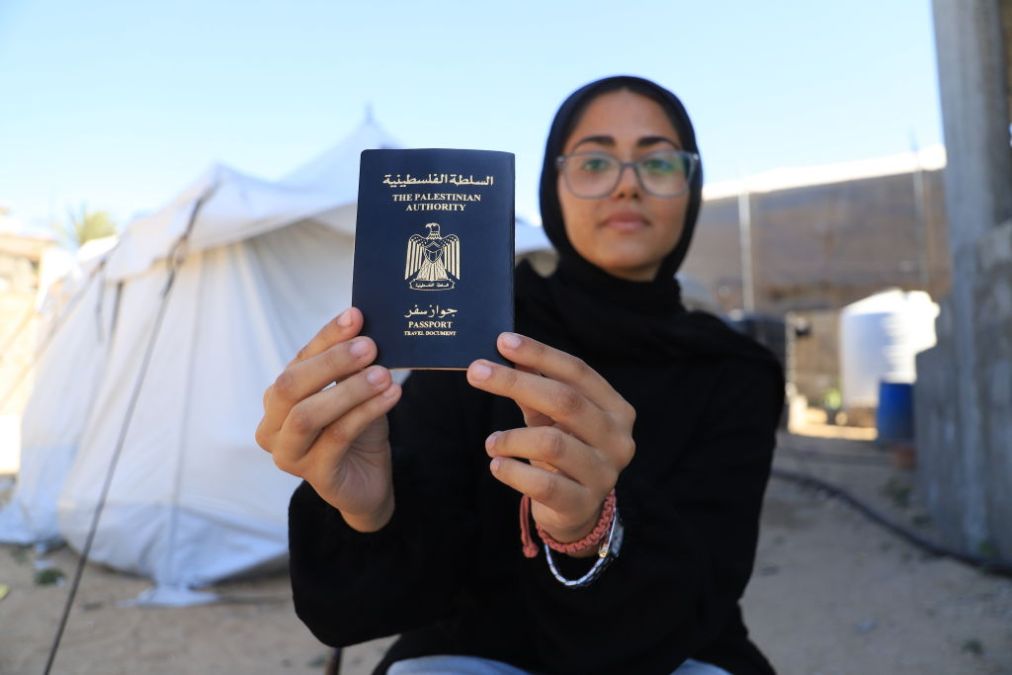
URGENT UPDATE: The U.S. government has just announced a sweeping suspension of nearly all nonimmigrant visas for holders of Palestinian passports, marking a significant escalation in restrictive policies. This decision, confirmed by U.S. officials to the New York Times, comes in the wake of increasing tensions surrounding the ongoing Israel-Hamas conflict.
Effective immediately, this policy, outlined in an August 18 cable from the U.S. State Department, halts visa approvals for various purposes, including medical treatment, educational pursuits, family visits, and business travel. The implications of this suspension are profound, affecting countless individuals seeking to enter the U.S. for legitimate reasons.
According to the internal directive, U.S. embassies and consulates are instructed to deny nonimmigrant visas to “all otherwise eligible Palestinian Authority passport holders.” This guidance even extends to those applying for diplomatic or official visas. Palestinian passport holders from Gaza, the Israeli-occupied West Bank, and elsewhere are directly impacted by these new measures.
The State Department has begun revoking and denying visas for Palestinian officials in anticipation of the upcoming United Nations General Assembly later this month. This targeted action adds to a series of restrictions that have intensified over recent months, particularly affecting Palestinians from Gaza seeking humanitarian and medical assistance.
The suspension comes as international condemnation of Israel’s military operations in Gaza grows. Reports indicate that over 60,000 Palestinians and nearly 2,000 Israelis have lost their lives since the conflict intensified, according to Gaza’s Health Ministry and Israeli authorities. The conflict’s toll, combined with the current humanitarian crisis, raises urgent questions about the U.S. role and its support for Israel amidst these developments.
The directive also emphasizes that while the U.S. recognizes the Palestinian Authority as a competent authority for issuing passports, it does not acknowledge it as a “foreign government.” This distinction has significant ramifications for Palestinian nationals trying to navigate U.S. immigration processes.
Many critics have raised alarms over the motivations behind these visa suspensions. Kerry Doyle, former lead attorney for U.S. Immigration and Customs Enforcement, questioned whether genuine national security concerns are at play or if the actions are politically motivated to align with pro-Israel sentiments.
As the situation continues to unfold, the international community watches closely. Several allied nations, including Canada, France, and the U.K., have signaled plans to recognize a Palestinian state at the upcoming U.N. General Assembly, indicating a shift in diplomatic dynamics.
The ramifications of these visa restrictions extend beyond mere travel; they reflect broader geopolitical tensions and humanitarian crises. As the U.S. takes a firmer stance on Palestinian passport holders, the immediate impact on families, students, and professionals seeking to travel is undeniable.
WHAT’S NEXT: As the U.N. General Assembly approaches, further developments are expected. Observers anticipate potential backlash from the international community, and the situation will remain fluid as additional countries consider their positions regarding Palestine.
Stay tuned for continuous updates as this urgent situation evolves, and share this information widely to raise awareness of these critical developments affecting Palestinian passport holders.





